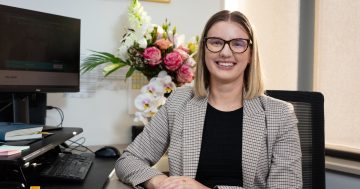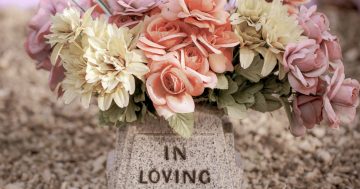
Where there’s a will … Lorraine White, partner at BDN Lawyers, says people are the most interesting part of her work in estate disputes. Photo: BDN Lawyers.
Lorraine White finds people endlessly fascinating.
In fact, the principal director of BDN Lawyers says people are the most interesting aspect of her job.
It probably comes as no surprise that when it comes to dealing with a deceased person’s estate, Lorraine has seen the best – and worst – of human nature.
“People never cease to amaze me,” says Lorraine, who has honed her expertise in wills and estate law at one of Australia’s oldest law firms for the past 14 years.
“I’ve met really lovely people and some very greedy people.”
Yet Lorraine says she loves this area of law.
And she gets to wrangle it across NSW and the ACT, which have quite different rules and requirements relating to wills, estates and inheritance.
Dealing with the nitty-gritty of this complicated area of law is best left to experienced lawyers. But Lorraine says there are a couple of basics people can do to potentially save time, money and conflict over a loved one’s estate.
The first task is pretty simple: make a will.
Lorraine says many people don’t fully understand the pitfalls – and costs – associated with a public trustee, which can administer the estate of someone who dies without a will (dying intestate) or without naming an executor.
Public trustees, established by the government in each state and territory, survive on the fees they charge. Various fees exist for managing and administering the estate, including a commission based on a percentage of the estate’s value.
All the ongoing fees can add up quickly.
“You’ll find that information in very fine print on their website and most people get a massive shock when they see the costs,” Lorraine says.
“These days (with property prices the way they are), it’s easy to have an estate worth between $1 million and $2 million and, with a 3 per cent commission, that fee could be upwards of $60,000.
“Also, with a public trustee, you lose control over how the estate is distributed. In the ACT, for example, legislation dictates how much a spouse will get and how much the children get.
“At the end of the day, the beauty of a will is it’s neater and easier to process through the courts.”
The second thing to do is find the right person – or people – for the job of trustee once you’re gone.
You know the old saying, “Too many cooks spoil the broth”? Well, it’s a bit the same with trustees.
Appointing someone sensible who’s good with numbers is a great start, Lorraine says.
It often makes sense to appoint one or two adult children; any more than that and you can run into trouble.
In one of the worst cases she recalls, someone appointed four executors. Three got on well, the other didn’t get on with anyone.
“Never appoint more than two, otherwise it can be a disaster,” Lorraine advise.
“Inevitably, there’s always one protagonist who doesn’t get on with their siblings.”
When that happens, the costs start adding up: in time, money and angst.
Sometimes, the smallest estates can cause the biggest headaches, according to Lorraine.
“It can be the little estates people fight hardest over,” she says.
A good lawyer will correctly guide and advise whether you have a genuine claim on an estate.
And whether it’s worth it.
Often, it’s not what you think – even for spouses and children.
What people are legally entitled to can vary wildly across different states and territories.
“Some lawyers think, ‘I’ll just put a claim on because I know I’ll get something’. They might get an extra $50,000, but the fees are $40,000!”
Blended families can be particularly tricky, Lorraine admits.
“Eighty-five per cent of claims in NSW are an adult child of the deceased making a claim against the step-parent,” she says.
If you want to challenge an estate, you need to keep in mind courts rule on the basis of need.
“If you’re going to court, you will need to expose every aspect of your life – from your assets to how much super you have and even your health situation.”
In NSW, there is an expectation on parties to resolve matters quickly through mediation to avoid racking up tens of thousands of dollars in legal costs and whittling away the benefit of the estate.
That’s something Lorraine prides herself on.
“I like to think you’re in good hands here.
“When people come to see me and want to challenge an estate, I can usually tell them pretty quickly whether a claim would be successful or not.”





















